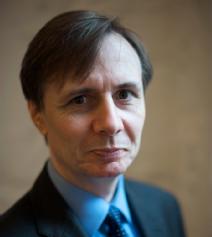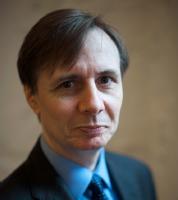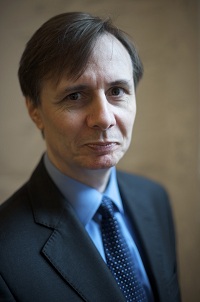WMG News
WMG’s BSc Cyber Security receives full certification from the National Cyber Security Centre
WMG’s Cyber Security undergraduate degree has received recognition for its cutting-edge education after receiving full certification from the UK Government’s National Cyber Security Centre (NCSC).
Government’s National Cyber Security Centre (NCSC).
The BSc Cyber Security at the University of Warwick offers a strong foundation in cyber security principles and practical skills, allowing graduates to make meaningful contributions in organisations by safeguarding sensitive information and defending against cyberattacks.
The course is one of only nine fully-certified undergraduate degrees recognised by the NCSC. This certification can help prospective students to make better informed choices when looking for a cyber security course. Employers will also recognise the degree and will benefit from recruiting employees who have had an opportunity to develop their skills in cyber security through a course which has high-quality teaching.
The BSc Cyber Security is the third programme at WMG to gain similar national recognition; both the MSc Cyber Security Engineering and the MSc Cyber Security Management are fully certified by the NCSC.
The University is also recognised by the NCSC as an Academic Centre of Excellence in Cyber Security Education (ACE-CSE) and an Academic Centre of Excellence in Cyber Security Research (ACE-CSR). This level of recognition demonstrates Warwick’s broader commitment to excellence in cyber security education and research, both nationally and in local communities.
Dr Harjinder Lallie, Associate Professor at WMG said: “Being one of only two institutions in the UK with five NCSC certifications underlines the commitment to a world-class cyber security curriculum and associated research programme.
“The upgrade from provisional to full certification has highlighted the effort and commitment the cyber security team have made to the education we offer and helps provide confidence to incoming students as well as employers about our commitment to quality.”
NCSC Deputy Director for Cyber Growth, Chris Ensor said: “The certification of the University of Warwick’s BSc Cyber Security degree by the NCSC demonstrates our shared commitment to responsibly developing the cyber security talent pipeline.
“Offering an NCSC-certified degree helps prospective students make better informed choices about the quality of courses available, and employers can be assured that graduates will be well-taught and have valued industry skills.”
Find out more about the BSc Cyber Security undergraduate degree here: www.warwick.ac.uk/fac/sci/wmg/education/undergraduate/cyber
WMG Professor announced as new Programme Director for Defence and Security at The Alan Turing Institute
 Tim Watson, WMG’s Professor of Cyber Security and the Director of the WMG Cyber Security Centre, has been named as the new Programme Director for Defence and Security at The Alan Turing Institute.
Tim Watson, WMG’s Professor of Cyber Security and the Director of the WMG Cyber Security Centre, has been named as the new Programme Director for Defence and Security at The Alan Turing Institute.
Professor Watson will lead a portfolio of work applying data science and artificial intelligence to national security, cyber security, and defence challenges, working closely with national and international partners.
He will take responsibility for the refresh and delivery of the strategy for the Institute’s Defence and Security Programme. His work will be vital in the development of a vibrant and high impact research and training programme.
Professor Watson is seconded to the Institute from his role at WMG where he has more than thirty years’ experience working with government, industry and in academia, and is an advisor to various parts of the UK Government and to several professional and standards bodies.
Professor Watson said, “I am delighted and honoured to be joining The Alan Turing Institute as its new Programme Director for Defence and Security. The role of data science and AI is more central than ever to our collective safety and security.
“It is vital that the world-class talents brought together by the Turing deliver the tools, insights and advances we need for a safer, more prosperous world. Together with the rest of the team at the Turing and with the wider research community, I look forward to contributing to this important and exciting work.”
WMG Professor helps shape House of Lords Select Committee report
 Professor Tim Watson, Director of WMG’s Cyber Security Centre, has shared his expertise in the House of Lords Select Committee on Risk Assessment and Risk Planning report entitled ‘Preparing for Extreme Risks: Building a Resilient Society.’
Professor Tim Watson, Director of WMG’s Cyber Security Centre, has shared his expertise in the House of Lords Select Committee on Risk Assessment and Risk Planning report entitled ‘Preparing for Extreme Risks: Building a Resilient Society.’
Professor Watson gave evidence to the panel which was used to shape the report published on Friday 3rd December.
The Committee was appointed in October 2020 to "consider risk assessment and risk planning in the context of disruptive national hazards". Following 29 oral evidence sessions with 85 witnesses and 90 written submissions, the Committee concluded that the UK must be better at anticipating, preparing for and responding to a range of challenging risk scenarios, including those which it has never experienced before.
The report emphasises that the Government's current strategy of centralised and opaque risk assessment and risk management, which fails to make adequate preparations, has left the UK vulnerable.
The Chair of the Committee, Lord Arbuthnot, said: "Our inquiry has concluded that the UK must adopt a whole of society approach to resilience, one which emphasises the important role played by all sections of society in preparing for, adapting to and recovering from the effects of risk. Risk and resilience are not solely the concern of central Government policymakers, and since they have the capacity to alter the lives of everyone in the country, everyone needs to be involved in shaping the response to the risks that we face."
Read the report in full here: https://publications.parliament.uk/pa/ld5802/ldselect/ldrisk/110/11002.htm
WMG research shortlisted for key industry tech award
 WMG’s Secure Cyber Systems Research Group has been shortlisted for a TechWorks R&D Excellence Award.
WMG’s Secure Cyber Systems Research Group has been shortlisted for a TechWorks R&D Excellence Award.
The R&D Excellence Award celebrates innovative R&D activity involving strong Industry and Academic collaboration. This category showcases world-class technology development that has the very high potential of being adopted by industry.
Professor Carsten Maple explained: “I am extremely grateful to all of the team for their huge effort and fantastic outputs. I am so pleased that their efforts have been recognised by a national awards panel.
“The awards recognise outstanding collaboration, and we have certainly made our case based upon the many successful projects, including BeARCAT, IoT-Tram, Capri and S-CAV, that we have delivered with multinational partners and SMEs.
“Being recognised as a finalist is a fantastic achievement and testimony to the hard work of everyone here at WMG.”
Winners will be announced at the TechWorks Gala Dinner and Awards Ceremony on Thursday 9th December, at the Leonardo Royal Hotel London St Paul’s.
Read more about WMG’s cyber security research here: Cyber Security (warwick.ac.uk)
WMG Professor shares expertise in key parliamentary report
 Professor Tim Watson, Director of WMG’s Cyber Security Centre, has shared his expertise in a key parliamentary POSTnote focusing on Smart Cities.
Professor Tim Watson, Director of WMG’s Cyber Security Centre, has shared his expertise in a key parliamentary POSTnote focusing on Smart Cities.
A POSTnote helps members of the House of Commons and the House of Lords, and UK parliament staff navigate complex topics and research in science, technology and social sciences.
This POSTnote looks at smart city innovation in the UK and technologies involved. It considers the factors driving adoption of smart city technologies, and the potential benefits, barriers and risks associated with their implementation.
Professor Tim Watson explains: “Smart cities use data and digital technology to make better decisions and improve the quality of life of people in the community. Local councils and governments can get more comprehensive, real-time data to understand how demand patterns are changing. This data can then be analysed to help with better decision making.”
Throughout the UK cities are, using this data, adopting strategies to boost their economy following the pandemic, allowing them to ‘build back better.’
Read more about Smart Cities here: https://post.parliament.uk/research-briefings/post-pn-0656/
Developing the next generation of transport solutions
The concept of widespread Connected and Automated Mobility (CAM) is quickly becoming something of a reality thanks to a national and global push to develop the next generation of transport solutions. An integral part of the Government’s Road to Zero strategy, CAM is expected to become widely deployed across the UK and will be a key driver behind ambitions to eventually achieve zero accidents, zero congestion and zero emissions on the road.
Evolving into a sector that is predicted to be worth £907 billion by 2035, CAM has also conjured new societal and technological challenges that need to be considered. At WMG, University of Warwick, we’ve been tackling some of these challenges by focusing on how to improve security, privacy and safety in connected and automated vehicles from a cyber-perspective, conducting rigorous testing and exploring innovative technologies in a real-world environment.
Overcoming public anxiety
It’s not surprising to see that earning the public’s trust and subsequently reducing anxiety around this new form of travel is somewhat of a barrier to widespread adoption. However, our work to improve the privacy and safety of connected and automated vehicles will help to demonstrate the scalability and wider benefits of this new technology.
Our real-world testing considers how vehicles will connect with each other, as well as to the roadside infrastructure, and also how parts of this infrastructure can be intelligent in the ways that they share information with each other. Our work considers how this connectivity informs the automated activity of respective vehicles and more importantly influences how we expect vehicles to react when a data breach is attempted. For example, if a hacker manages to access the data in a vehicle or vehicular system, how do we safeguard against compromising the vehicle’s identity and history, how do we protect the locations that the vehicle has visited, or indeed how do we control what the vehicle does next in terms of its interactions with the roadside and other vehicles following a breach.
Transferring information within the roadside infrastructure
When a vehicle is travelling down a road it may meet multiple vehicles in a short space of time. In order to check the identity of these vehicles, the key of the other vehicle needs to be verified. However, having to check this in-Cloud infrastructure creates additional communication overhead, increasing the time before the vehicle receives the necessary verification. Instead, through the use of ‘Decentralised PKI’, vehicles can verify messages much faster as the key information is distributed over Edge infrastructure that sits next to the road. Essentially, this means that the roadside infrastructure can communicate with each other and directly transfer shared information, such as traffic levels, vehicle speed and direction. This eliminates the reliance on Cloud servers, saving communication time.
Protecting a vehicle’s identity
For a vehicle to send and receive these sorts of messages from other vehicles and the roadside effectively and reliably, it is important that the messages it sends contain proof that the vehicle is who it claims to be; these messages can be transmitted between cars or the road’s infrastructure from up to 500 meters away. Our ‘Group Signatures’ solution proves a vehicle’s identity without allowing that individual vehicle to be tracked over a long time. This method only indicates that the vehicle is a member of a group, making it much harder for privacy to be compromised, revealing the history of all the locations a respective vehicle, and therefore individual, has visited.
Verifying vehicle identities
However, it is an expensive task for a vehicle to verify another’s identity. Vehicles will have limited computing resources and so will only be able to verify a specific number of identities of senders of messages per second.
Therefore, with our ‘Authentication Prioritisation’ solution, the order in which the identity of messages are verified is decided based on assigning a priority to the messages. These priorities can be defined by vehicle distance, direction of travel or positioning on the road. A higher priority means that those messages are verified first.
Embedding the foundations for effective adoption
As we continue our research into privacy and security issues associated with CAM, our end goal is to achieve the right technological balance to enable effective and quick communication between vehicles and the roadside infrastructure, whilst protecting the privacy of individual vehicles and allowing reliable and safe messages to be filtered by vehicles in order of importance. At WMG, we are making significant strides towards achieving these goals and supporting the ultimate objective of assisting with the widespread adoption of Connected and Automated Mobility on UK roads.
Ministers announce £4.25 Million funding for battery and autonomous vehicle research at WMG
 Today, Tuesday 11 April 2017, Business Secretary Greg Clark and Transport Minister John Hayes have announced a range of research funding which included a total of £4.25 million, split between a battery research project and an autonomous vehicle research project, both with input from WMG at the University of Warwick.
Today, Tuesday 11 April 2017, Business Secretary Greg Clark and Transport Minister John Hayes have announced a range of research funding which included a total of £4.25 million, split between a battery research project and an autonomous vehicle research project, both with input from WMG at the University of Warwick.
UK Government’s National Cyber Security Centre declares Warwick an official Academic Centre of Excellence in Cyber Security Research
Cyber Security research across the University of Warwick has been recognised as an “Academic Centre of Excellence in Cyber Security Research” (ACE-CSR) by the UK’s National Cyber Security Centre (NCSC) and The Engineering and Physical Sciences Research Council (EPSRC).
The recognition was announced today by Ben Gummer MP, Minister for the Cabinet Office.
The Warwick Academic Centre of Excellence in Cyber Security Research brings together researchers from a number of University of Warwick departments in particular WMG, Politics and International Studies (PAIS), Computer Science, Warwick Business School, and several others.
Chris Ensor, Deputy Director for Cyber Security Skills and Growth at the NCSC, said:
“It’s fantastic to see so many leading universities committed to trailblazing improvements to the UK’s cyber security research, and it is particularly good to see Scotland represented for the first time.
“At the NCSC, we are absolutely committed to maintaining and improving our already strong reputation as a global leader in cutting edge research, and look forward to collaborating with these establishments to make the UK the safest place to live and work online.
“These universities conduct world class cyber security research and this initiative will improve the way academics, government and business work together – benefiting the whole of the country.”
Addressing the cyber skills shortage
 We are excited to announce that we will be working with Cyber Scheme, by helping to run assessments for its newly accredited CSTL examination for the Team Leader qualification.
We are excited to announce that we will be working with Cyber Scheme, by helping to run assessments for its newly accredited CSTL examination for the Team Leader qualification.
The Cyber Scheme is run by an independent board of directors drawn from a range of backgrounds but with significant experience in business and cyber security. The not-for-profit Cyber Scheme has been set up with the approval of NCSC (formerly GCHQ) as the national authority on cyber security.
Major funding boost for robotics and autonomous tech at WMG
The development of robotics and autonomous technology at WMG has received part of a £6.5 million boost from the Engineering and Physical Sciences Research Council (EPSRC).
The grant, of which over £620,000 goes to WMG, will help to advance work on the world’s most adaptable 3xD simulator for autonomous vehicles.
WMG's 3xD simulator recreates the world for an intelligent vehicle, replicating complex driving scenarios, communications interference or unexpected events, all in a safe and repeatable environment.
It is the only simulator of its kind designed specifically to test real-world robustness and usability of smart, connected and autonomous vehicle technology.
EPSRC’s overall £6.5m capital investment will strengthen and consolidate its existing investments to enhance capabilities and enable collaboration across a common platform within the UK Robotics and Autonomous Systems Network (UK-RAS Network).

